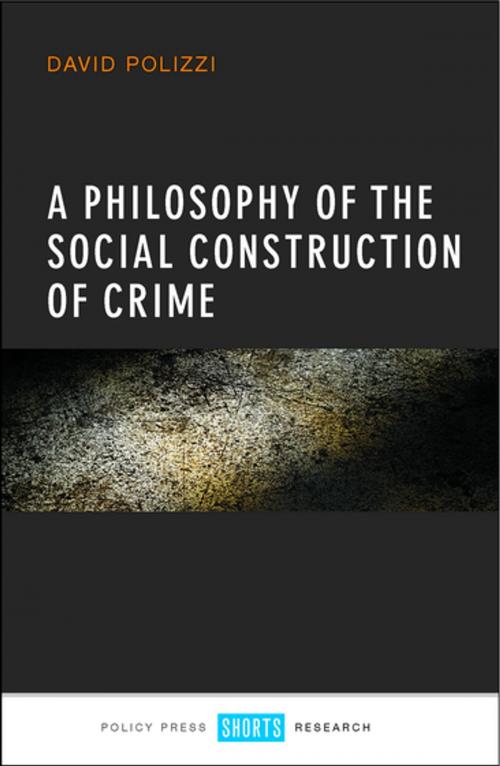A philosophy of the social construction of crime
Nonfiction, Social & Cultural Studies, Social Science, Crimes & Criminals, Criminology| Author: | Polizzi, David | ISBN: | 9781447327349 |
| Publisher: | Policy Press | Publication: | November 19, 2015 |
| Imprint: | Policy Press | Language: | English |
| Author: | Polizzi, David |
| ISBN: | 9781447327349 |
| Publisher: | Policy Press |
| Publication: | November 19, 2015 |
| Imprint: | Policy Press |
| Language: | English |
It is well known that the social definition of individuals and ethnic groups helps legitimize how they are addressed by law enforcement. The philosophy of the social construction of crime and criminal behaviour reflects how individuals, such as police officers, construct meaning from the perspective from which they emerge, which in turn influences their law enforcement outlook. In the field, this is generally viewed through a positivist frame of reference which fails to critically examine assumptions of approach and practice. Written by an international specialist in this area, this is the first book which attempts to situate the social construction of crime and criminal behaviour within the philosophical context of phenomenology and how these constructions help inform, and ultimately justify, the policies employed to address them. Challenging existing thinking, this is essential reading for academics and students interested in social theory and theories of criminology.
It is well known that the social definition of individuals and ethnic groups helps legitimize how they are addressed by law enforcement. The philosophy of the social construction of crime and criminal behaviour reflects how individuals, such as police officers, construct meaning from the perspective from which they emerge, which in turn influences their law enforcement outlook. In the field, this is generally viewed through a positivist frame of reference which fails to critically examine assumptions of approach and practice. Written by an international specialist in this area, this is the first book which attempts to situate the social construction of crime and criminal behaviour within the philosophical context of phenomenology and how these constructions help inform, and ultimately justify, the policies employed to address them. Challenging existing thinking, this is essential reading for academics and students interested in social theory and theories of criminology.















